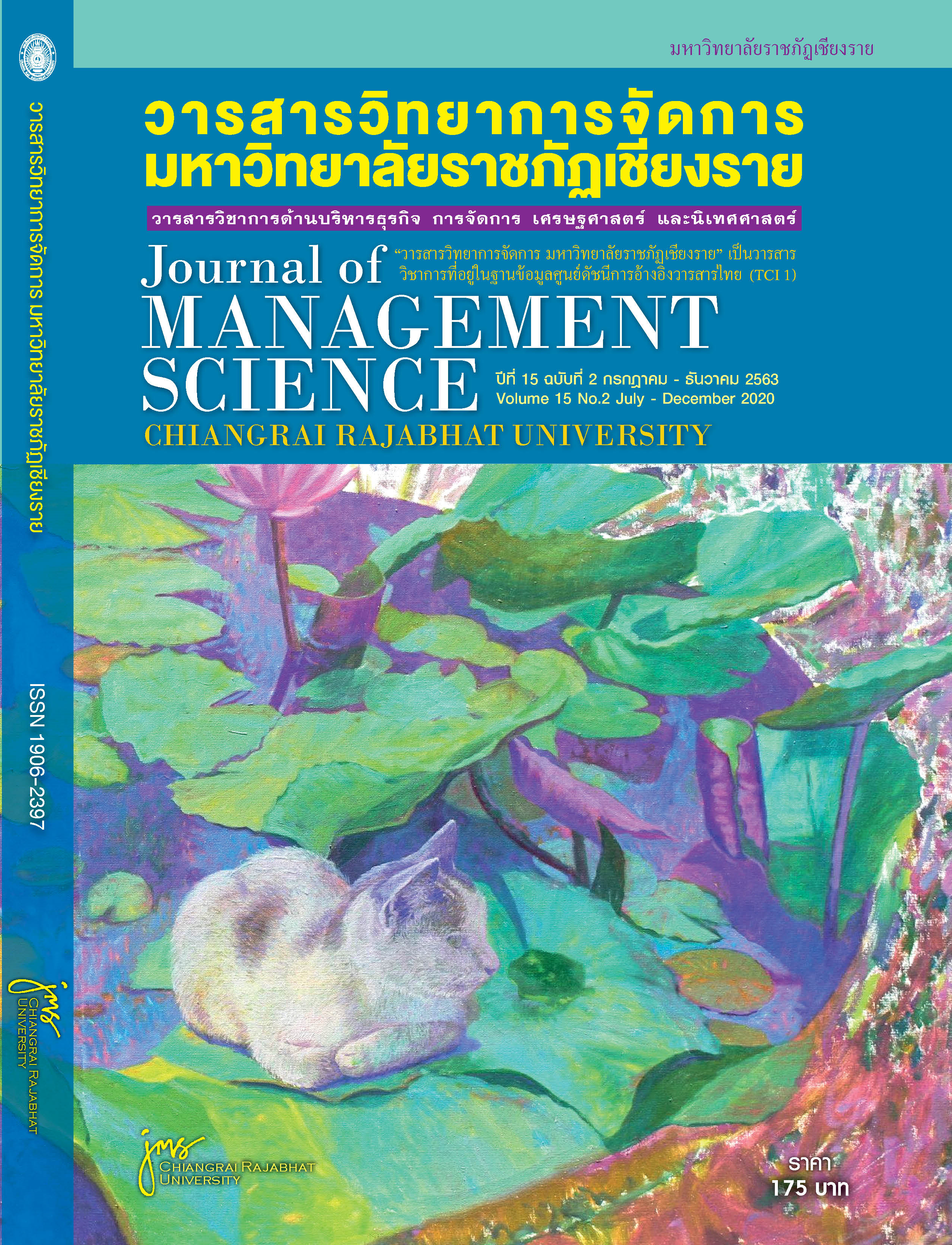Language and identity of third sex masters of ceremony as represented in television programs
Main Article Content
Abstract
This qualitative study entitled “Language and Identity of the Third Gender Masters of Ceremony as Represented in Television Programs” aims to analyze the characteristics of language use that formulate the identity of the third gender masters of ceremony. The samples were the language used by three major hosts in their TV programs, namely Wuttitorn Milintachinda, Eakachai Aursangkomset, and Kanatip Soonthonrak. Textual analysis based on the ethnography of communication theory was employed to analyze identities of the third gender, concepts about TV hosts, and language use of the third gender group. The language for analysis in this study involved both verbal and non-verbal, and the third gender hosts only referred to homosexual men hosts. The results showed that although the language use of the three hosts, both verbal and non-verbal shared common and dissimilar characteristics, the language use reflects their identity in the same way (Collective Identity). This collective identity reflects their knowledgeable competence, capability and values derived from their unique identity as observed from their language use.
Article Details
Views and opinions expressed in the journal do not necessarily reflect those of the editors.
References
Archavanitkul, Kritaya . (2011). Sexuality Transition in Thai Society. Retrieved June 17, 2017,
from http://www2.ipsr.mahidol.ac.th/ConferenceVII/Download/2011-Article-03.pdf. (in Thai)
Butsabokkaew, Theera. (2010). Linguistic devices and the presentation of self-identity by the "online gays". Master of
Arts, Faculty of Arts, Chulalongkorn University. (in Thai)
Chuenkar, Thanee. (2012). The study of gay indentity in Thai movies. Master of Communication Arts, Faculty of
Communication, Dhurakij Pundit University. (in Thai)
Feungfusakul, Apinya. (2013). Identity : Literature Review. Bangkok : National Research Council of Thailand. (in Thai)
Jackson, P. A. (1999). An American death in Bangkok: the murder of Darrell Berrigan and the hybrid origins of gay identity
in 1960s. A Journal of Gay and Lesbian Studies, 5(3) 361-411.
Jackson, P. A. (2001). Pre-gay, Post-queer: Thai perspectives on proliferating gender/sex diversity in Asia. Journal of
Homosexuality, 40(3-4), 1-25.
Jantrong, Tanya. (2012). Third sex identity communication via movies and reality in thai society. Retrieved June 17,
, from http://mng.uru.ac.th/program/comart/files/socialthai.pdf. (in Thai)
Kaewprasert, O. (2008). Gender Representation in Thai Queer Cinemas. United Kingdom : University of Essex.
Nation TV. (2017). Komchadluek. “Tud Krongjor” Retrieved June 17, 2017,
from http://www.nationtv.tv/main/content/social/378492769/. (in Thai)
Nuntiwatwipa, Yuttana. (2004). Gay language : AN Analytical Study. Master of Education, Srinakharinwirot University.
(in Thai)
Patkacha, Urapong & Prangsorn, Surakij. (2012). The presentation of sexuality through Thai films : Dimension of reality in
thai society. Bussiness Magazine, 34(4), 147-155. (in Thai)
Ramitanon, Chalardchai . (2007). Identity Culture and Change. Retrieved June 17, 2017,
from http://www.soc.cmu.ac.th/~wsc/data/Identity28_3_05.pdf. (in Thai)
Sittijinda, Sucheewa. (2011). Perception of role and identity of hosts of science TV program, A Thesis Submitted in
Partial Fulfillment of the Requirements for the Degree Master of Arts, Faculty of Communication Arts,
Chulalongkorn University. (in Thai)
Thaipost, (8 November 2014). Third sex masters of ceremony in Full Screen, be afraid imitate, Thaipost 2-3. (in Thai)
Tongsuk, Bongkotchakon. (2010). Alternative: The Study of the Specific Vocabulary Used by the Third Sex
People in Thai Novel. Master of Art, Kasetsart University. (in Thai)


